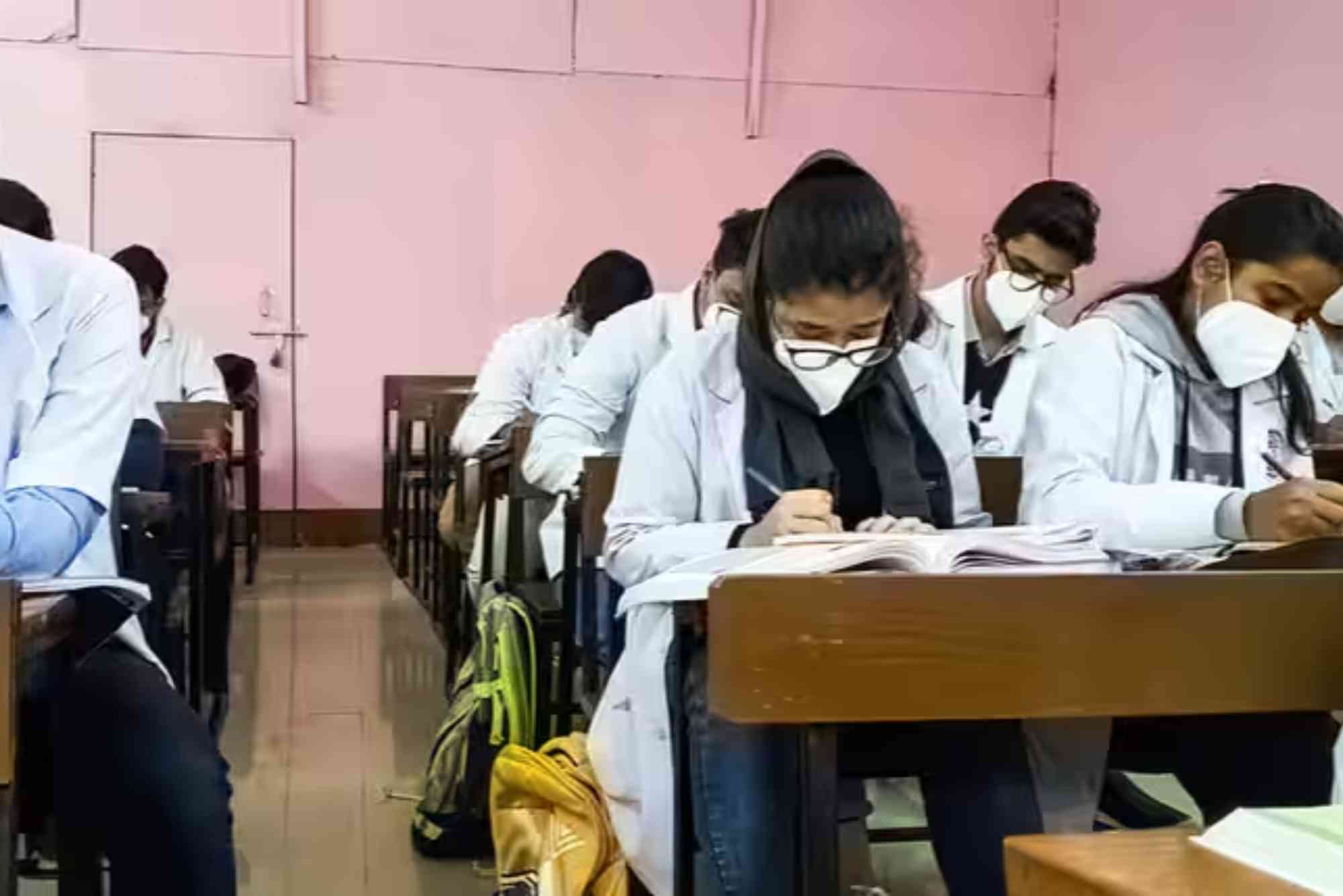Introduction
The Jawaharlal Institute of Postgraduate Medical Education and Research, widely known as JIPMER, stands as one of India’s premier medical institutions. Established in Puducherry, this institute represents a blend of academic excellence, advanced healthcare, and innovative research. Over decades, the Jawaharlal Institute of Postgraduate Medical Education and Research has earned recognition nationally and internationally for nurturing some of the most skilled healthcare professionals. Its holistic approach to education, patient care, and research places it among the elite institutions in the field of medicine.
This article explores every essential aspect of the Jawaharlal Institute of Postgraduate Medical Education and Research, from its origin and academics to its hospital services and opportunities for aspiring medical students.
History and Legacy of Jawaharlal Institute of Postgraduate Medical Education and Research
The origins of the Jawaharlal Institute of Postgraduate Medical Education and Research trace back to the early 19th century, when it began as École de Médicine de Pondichéry during French colonial rule. Over time, it evolved into a full-fledged medical college, gaining prestige for its quality teaching and robust hospital services. In 1964, it was renamed after India’s first Prime Minister, Jawaharlal Nehru, reflecting his vision for a modern, research-driven medical institution.
Since its inception, JIPMER has balanced tradition with innovation. It continues to expand its facilities, incorporating cutting-edge technology, laboratories, and specialized departments that address India’s evolving healthcare needs.
Academic Excellence at Jawaharlal Institute of Postgraduate Medical Education and Research
The academic framework at JIPMER is designed to produce competent, compassionate, and skilled medical professionals. With a rigorous selection process, the institute ensures that only the most dedicated students enter its programs.
Undergraduate Programs
JIPMER offers undergraduate courses in medicine and allied health sciences. Its flagship MBBS program attracts thousands of aspirants each year due to its academic rigor, practical exposure, and multidisciplinary learning environment. Students benefit from hands-on training in hospital wards, laboratories, and community health settings.
Postgraduate Programs
The Jawaharlal Institute of Postgraduate Medical Education and Research has a strong reputation for its postgraduate programs. These include MD, MS, and various diploma courses across specialties. The curriculum emphasizes clinical exposure, research methodology, and evidence-based practice. This ensures graduates are well-prepared for both national and international healthcare systems.
Super Specialty Courses
Beyond postgraduate studies, JIPMER offers DM and MCh super specialty programs in disciplines such as cardiology, neurosurgery, and neonatology. These advanced courses are designed for doctors seeking to specialize in niche areas of medicine.
Research Opportunities
Research is at the heart of JIPMER’s mission. The institute houses modern laboratories, ethical research committees, and encourages student participation in projects. From public health studies to cutting-edge medical trials, the research environment fosters innovation and scientific thinking.
Hospital Services at Jawaharlal Institute of Postgraduate Medical Education and Research
A major component of JIPMER’s identity is its hospital. The JIPMER Hospital serves as a tertiary care center offering high-quality services to thousands of patients daily.
Patient Care
JIPMER Hospital provides affordable and sometimes free medical care to underserved communities while maintaining international standards of treatment. Patients benefit from access to specialists, advanced diagnostic facilities, and 24-hour emergency services.
Specialized Departments
The hospital encompasses a wide array of specialties including cardiology, nephrology, oncology, obstetrics, pediatrics, and critical care. Each department is equipped with advanced diagnostic tools and staffed by experienced medical professionals.
Public Health Initiatives
In addition to hospital-based care, the Jawaharlal Institute of Postgraduate Medical Education and Research conducts outreach programs and public health initiatives. It manages rural and urban health centers where medical students gain field experience while serving local populations.
Campus and Infrastructure of Jawaharlal Institute of Postgraduate Medical Education and Research
JIPMER’s campus in Puducherry is spread across a large area featuring academic blocks, residential facilities, and hospital buildings. Its serene environment and well-planned infrastructure create an ideal space for learning and research.
The campus includes lecture halls with modern audio-visual equipment, well-stocked libraries, advanced laboratories, and simulation centers. Hostels provide accommodation for students, interns, and resident doctors, fostering a collaborative environment.
Sports and recreational facilities ensure students maintain a healthy balance between academics and personal well-being. The campus also hosts cultural events, seminars, and conferences, contributing to a vibrant academic community.
Admission Process at Jawaharlal Institute of Postgraduate Medical Education and Research
Securing admission at JIPMER is highly competitive, reflecting its prestige.
Entrance Examinations
For undergraduate programs, candidates must qualify through the National Eligibility cum Entrance Test (NEET-UG). Postgraduate aspirants appear for NEET-PG or INI-CET depending on the course. Only the highest scorers make it to the merit list.
Counseling and Selection
Once shortlisted, candidates participate in counseling sessions to select their course and specialty. The process emphasizes transparency and fairness, ensuring students from diverse backgrounds gain access.
Eligibility Criteria
The eligibility criteria vary by program, but typically require high academic achievement in science subjects at the school level for undergraduates, and relevant MBBS degrees for postgraduates.
Career Opportunities After Graduating from Jawaharlal Institute of Postgraduate Medical Education and Research
Graduates of JIPMER enjoy a strong reputation in the medical community. Many go on to become renowned clinicians, researchers, and public health leaders.
The institute’s training equips students with critical thinking, problem-solving skills, and ethical grounding. This opens doors to prestigious hospitals, research centers, and academic positions in India and abroad. Alumni also contribute to policymaking and health administration, influencing healthcare delivery at a national level.
Why Jawaharlal Institute of Postgraduate Medical Education and Research Stands Out
JIPMER’s blend of academic excellence, affordable healthcare, and community outreach distinguishes it from other institutions. Its emphasis on holistic training ensures graduates are not only technically skilled but also empathetic practitioners.
The institute’s commitment to research, continuous curriculum updates, and adoption of modern technology underscores its role as a leader in medical education and healthcare delivery.
Student Life at Jawaharlal Institute of Postgraduate Medical Education and Research
Life at JIPMER is not confined to classrooms and hospitals. Students participate in cultural fests, sports meets, and academic conferences. Clubs and societies encourage creative expression, leadership, and community service.
This enriching student life fosters teamwork, resilience, and a sense of belonging — qualities essential for future healthcare professionals.
Challenges and Future Directions
As healthcare evolves, so do the challenges faced by medical institutions. JIPMER continues to expand its facilities and introduce new technologies to meet growing patient loads and complex medical needs.
Its future plans include more interdisciplinary research, international collaborations, and digital healthcare initiatives. By investing in innovation and training, JIPMER ensures it remains at the forefront of medical education and service delivery.
Frequently Asked Questions About Jawaharlal Institute of Postgraduate Medical Education and Research
What is the full form of JIPMER?
The full form of JIPMER is Jawaharlal Institute of Postgraduate Medical Education and Research. It is located in Puducherry, India.
Is JIPMER better than other medical colleges in India?
JIPMER ranks among India’s top medical institutions due to its rigorous academics, state-of-the-art hospital facilities, and research opportunities.
How can I get admission to JIPMER?
Admission is through national-level exams such as NEET-UG, NEET-PG, or INI-CET, followed by counseling based on merit.
Does JIPMER provide free treatment?
JIPMER Hospital offers affordable and in many cases free treatment to economically weaker sections, maintaining high standards of care.
What courses are offered at JIPMER?
JIPMER offers MBBS, MD, MS, diploma courses, super specialties like DM and MCh, and various allied health science programs.
The Jawaharlal Institute of Postgraduate Medical Education and Research stands as a beacon of excellence in medical education, healthcare, and research. Its legacy, combined with modern facilities and a forward-looking approach, continues to shape India’s healthcare landscape. For aspiring doctors and healthcare professionals, JIPMER offers an unparalleled platform to learn, grow, and contribute to society.




